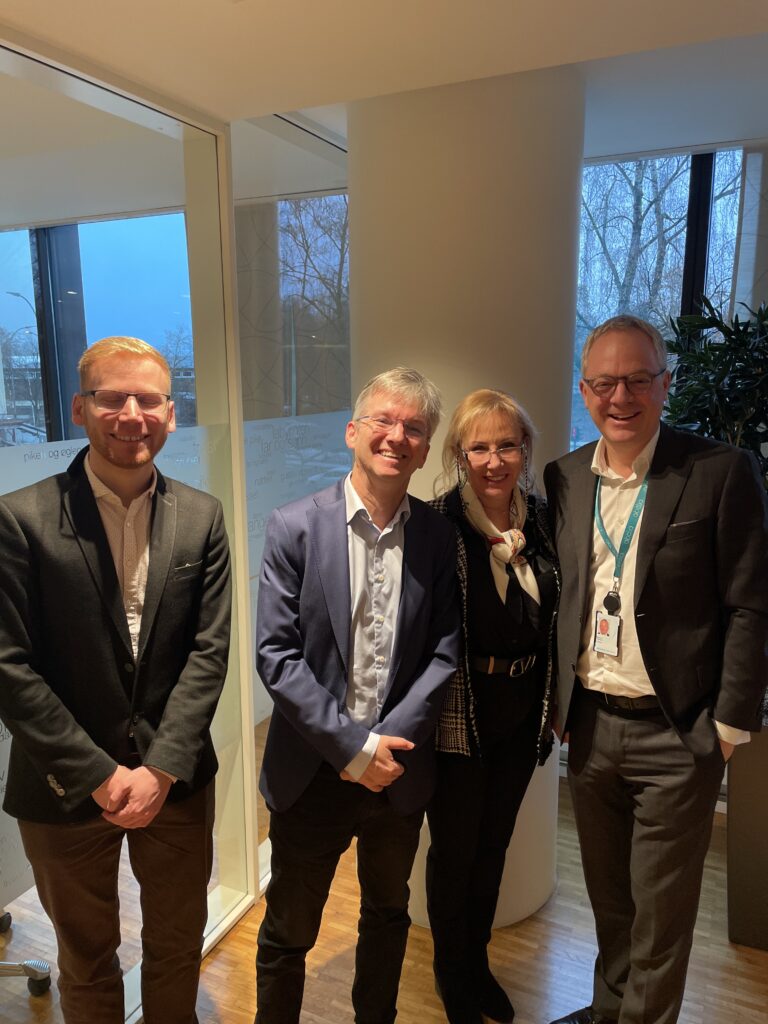
AAVIT Norwegian mission
AAVIT Norwegian mission
During this week, we visited Norway to gain knowledge and know-how in the Smart Cities concept and at the same time to look for new business opportunities for our members. The trip was helped by the Norwegian association Abelia, with whom we have established constructive cooperation over the past year through our joint membership of DIGITALEUROPE.
Our first stop was the city of Trondheim, where we first met with representatives of the private research organisation SINTEF. The latter is the largest of its kind in Norway and specialises, among other things, in innovative solutions in the field of Smart Cities. It has also been very successful in obtaining funding from the European R&D framework programmes. SINTEF representatives expressed interest in establishing cooperation with relevant Czech entities that would be invited as partners in future consortium projects. During the tour of the SINTEF premises we also had the chance to see the laboratory for the ZEB (zero emission buildings) concept. Digital systems are naturally its backbone.
We then visited the City Hall building, where representatives from the City of Trondheim described their experience in setting up a suitable methodological environment for the implementation and evaluation of smart solutions and explained their role in the overall development of the city. They described what indicators are used to measure the impact of the implemented measures and the role of the city’s cooperation with the university sector and SINTEF. Trondheim is one of the undisputed European R&D leaders. The city has over 200,000 inhabitants, and the R&D sector contributes a hardly believable one-seventh of the employment of its inhabitants.
On the second day we moved to the capital Oslo. During the morning program we met with Paul Chaffey, who has served as CEO of Abelia for the past 12 years and has helped build the association into a strong player in the Norwegian political and economic sphere. Paul also has executive experience, as does the current CEO of Abelia, Øystein E. Søreide, who was also present at the meeting. We were given valuable advice on ways in which the functioning of our association can be improved and its position in the public space strengthened. It was extremely interesting to hear what problems the Norwegian economy is currently facing and that the topic of energy is quite crucial even in this developed and resource-rich country.
The afternoon programme again included meetings with representatives of municipalities. The first stop was the city of Bærum near Oslo, which is interesting from the point of view of urban development. The city is currently expanding on the premises of a former airport, which creates a unique opportunity for implementing Smart Cities solutions in a comprehensive form. In fact, the complete infrastructure of an entire city district is being built from scratch. Smart solutions also help to plan the infrastructure efficiently as they work with data on the movement of people or vehicles. Our last meeting was directly with a representative of the capital. He gave us extremely interesting information about how communication between the City of Oslo and the private sector takes place in terms of supply and demand for innovative solutions. He also described some of the mechanisms to bring the necessary financial incentives for the development and implementation of Smart Cities applications that ultimately raise the standard of living of the population.
Our takeaway from the trip is that Norway is an inspiring country, and not only when it comes to the field of Smart Cities. Energy efficiency and sustainability are the main drivers of the societal debate, and in the current one, political pressure has already been matched by economic pressure, which is mercilessly setting the tone for this debate. All this, of course, in parallel with the desire to raise the standard of living and comfort of the population. In the Czech context, the Norwegian route provides several opportunities. The public sector and municipalities can take inspiration from Norwegian measures that help to improve the quality of life of the population and to spend increasingly scarce resources economically. In addition, Czech innovative entities, especially small and medium-sized enterprises, can establish cooperation with Norwegian partners, not only in the field of European research programmes. Internationalisation is one of the symptoms of the development of society and the Norwegian side can offer extremely attractive partners.



